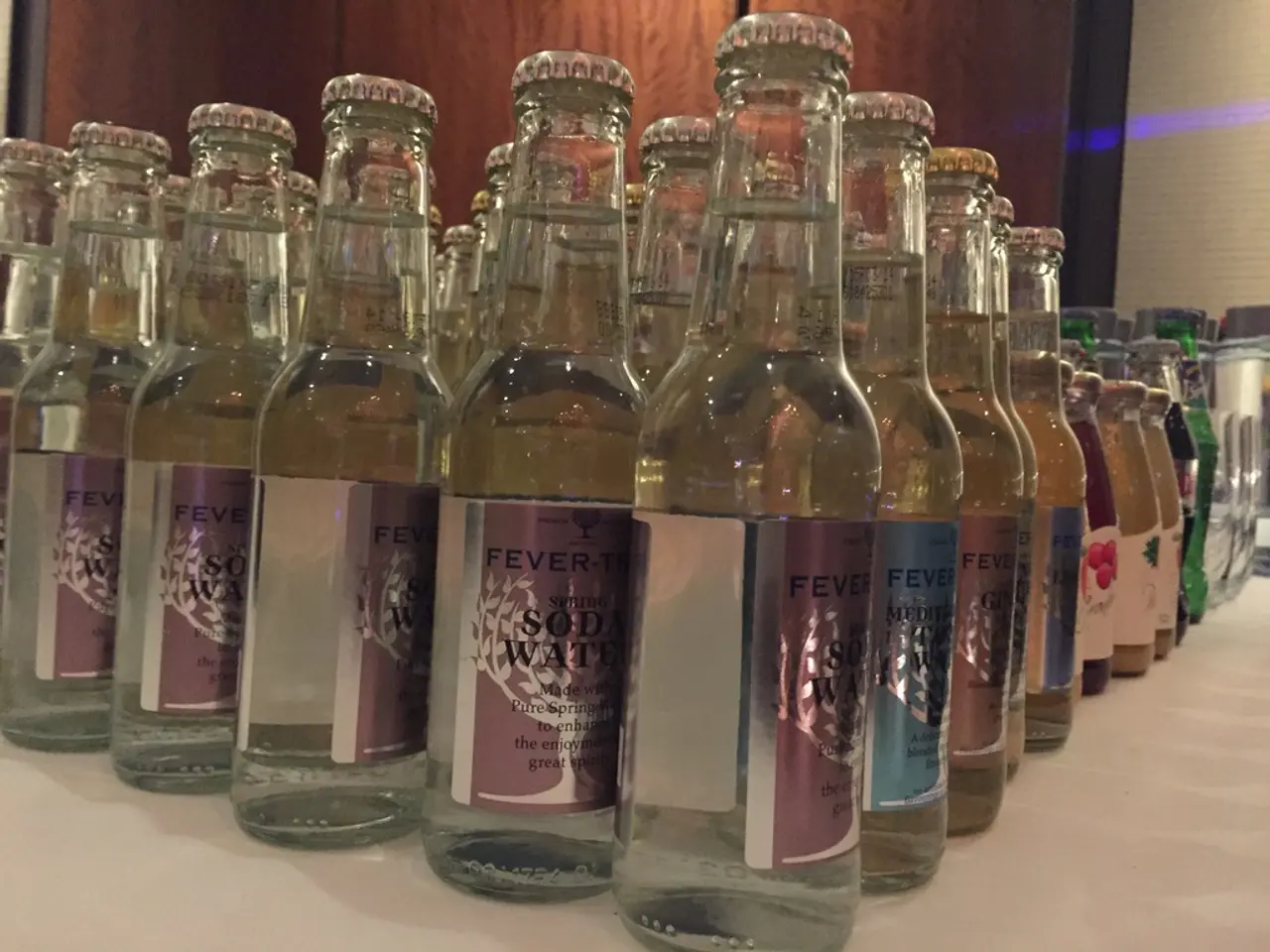Are electrolyte beverages essential for maintaining enough hydration in the body?
In the realm of wellness products, sports drinks have expanded their territory, moving beyond their traditional athlete niche. But before you reach for that bottle of sports drink, it's essential to understand the role of electrolytes and when they are truly necessary.
Firstly, it's important to note that any liquid can aid in rehydration, with good old-fashioned, plain water being the most straightforward option. However, it's true that you lose electrolytes in your sweat, a mix of water, salt, and additional minerals like potassium and magnesium.
In the Western diet, we often consume three times the amount of sodium we actually require. Yet, sports drinks and electrolyte powders can be useful in certain situations, such as for athletes who are actively working up a sweat for more than an hour or in hot, humid conditions. These supplements help improve fluid absorption in the gut, maintain hydration, and replace lost sodium and other electrolytes to reduce fatigue, cramping, and aid recovery.
However, unless you're sweating heavily for a long time or losing water rapidly due to illness, you don't need extra electrolyte supplements. Oral rehydration solutions can be critical in cases of extreme medical dehydration and have saved millions of lives around the world.
Electrolytes play a crucial role in maintaining equilibrium in cells and aiding communication between them. Signs of dehydration include getting thirsty, tired and cranky, a dry mouth, a headache, or feeling out of it. Dehydration decreases the amount of blood in circulation, which can make your heart rate beat faster when climbing stairs.
Under normal conditions, it's best to get electrolytes from whole foods rich in sodium, potassium, magnesium, and calcium. These include fruits like watermelon, cantaloupe, bananas, oranges, citrus fruits, and strawberries, vegetables such as cucumbers, squash (like zucchini), spinach, lettuce, leafy greens, potatoes, dairy and protein sources like Greek yogurt, cottage cheese, and avocado. These foods provide important electrolytes naturally while also offering hydration due to their high water content.
In summary, for typical daily activity or shorter workouts, water combined with a balanced diet of electrolyte-rich foods is sufficient. Sports drinks or powders are beneficial primarily for extended, intense sweating or specific athletic events demanding rapid electrolyte replacement. If you eat a somewhat balanced diet and you're not an elite athlete or working all day in the sun, you're most likely getting all the electrolytes you need from food.
Interestingly, U.S. consumers spend more than $10 billion a year on sports drinks, with claims that drinking sports drinks with electrolytes is crucial to replenish micronutrients lost in sweat. A 20-ounce bottle of lemon-lime Gatorade, for instance, contains nearly one-eighth teaspoons of salt and 80 milligrams of potassium. However, electrolytes are considered micronutrients because your body requires them in very small amounts.
So, next time you're considering a sports drink, remember that a balanced diet and water are often your best allies. If you like the taste of sports drinks, it's fine to use them a couple of times a day, but they won't improve your exercise performance or recovery. As always, it's essential to listen to your body and adapt your hydration habits accordingly.
- In the realm of health-and-wellness news, there's ongoing debate about the necessity of sports drinks due to their high electrolyte content.
- The science behind sports drinks indicates that they can be beneficial for athletes involved in extended, intense exercises, aiding in fluid absorption, maintaining hydration, and replacing lost sodium and other electrolytes.
- However, for fitness-and-exercise activities that don't involve prolonged, heavy sweating or rapid water loss, nutrition from a balanced diet rich in electrolyte-rich foods like fruits, vegetables, dairy, and protein sources may be more advantageous.




